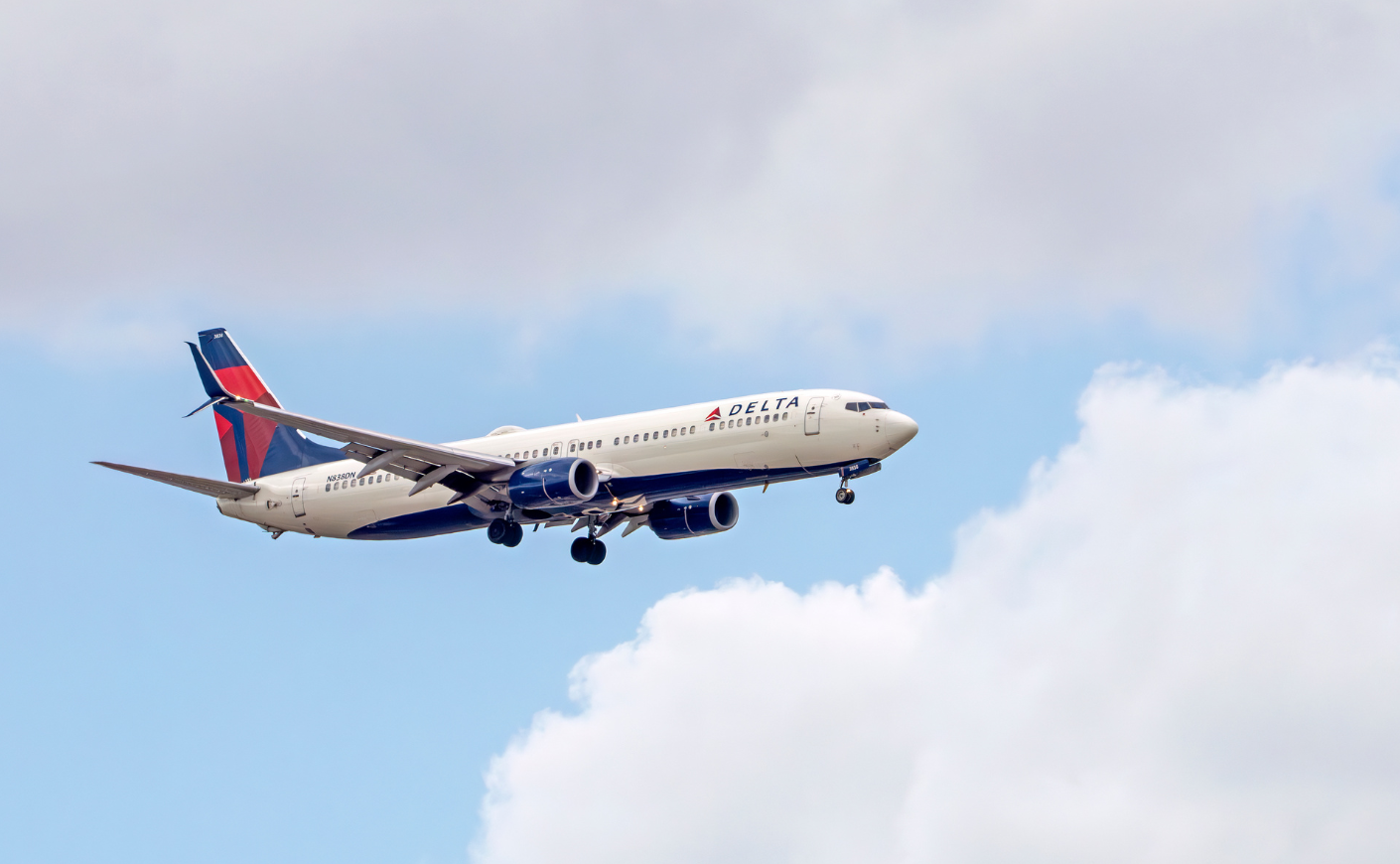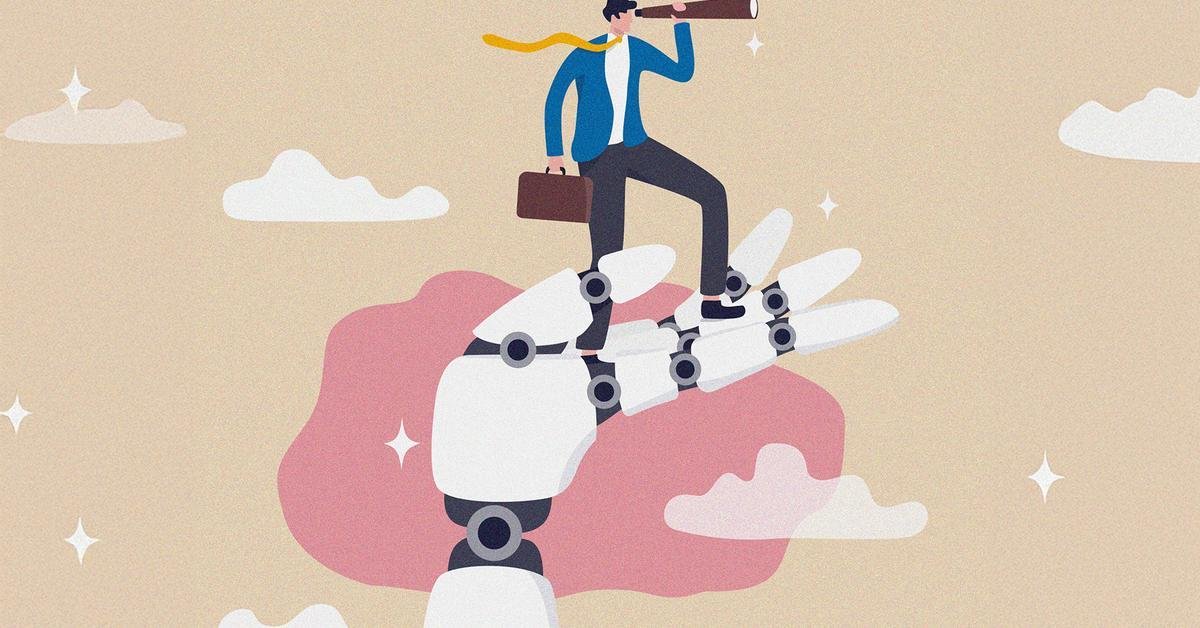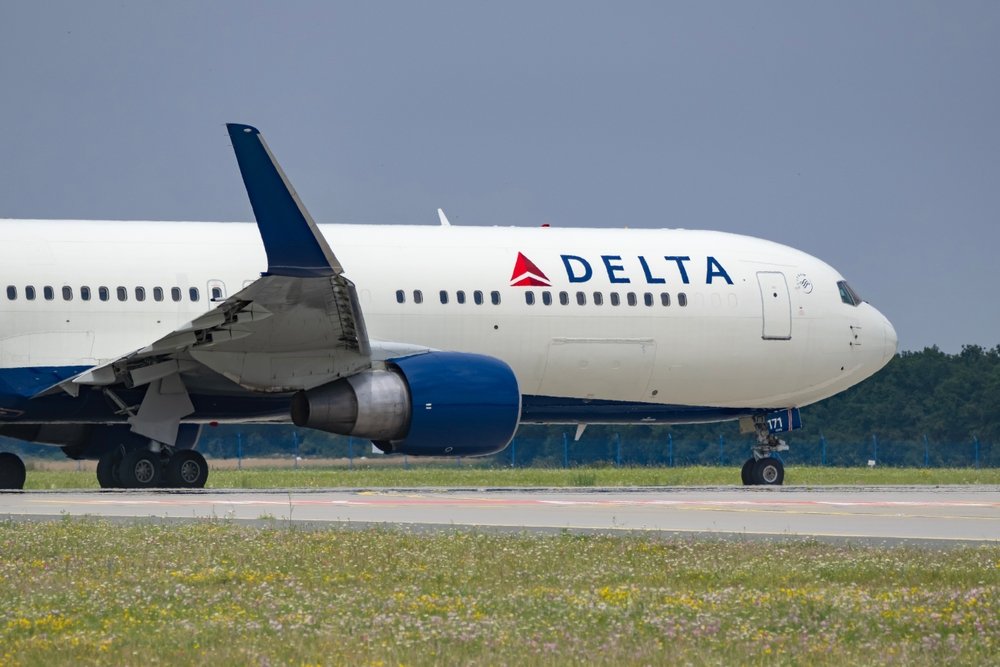AI in Travel
OpenAI and Singapore Tourism: The Future Of AI Powered Travel

Wednesday, July 30, 2025
In a historic first for the global tourism sector, the Singapore Tourism Board (STB) has developed a partnership with OpenAI – becoming the first national tourism organization in Asia to work with the artificial intelligence (AI) lab on what is set to be a dynamic destination marketing initiative. The partnership, which is encapsulated in a Memorandum of Understanding (MoU), will help drive a bold new transformation of Singapore’s tourism landscape by leveraging Advanced AI to enhance the visitor experience, drive operational efficiency, and enhance destination marketing.
This is an important milestone as Singapore takes further steps as a forward-looking city to pilot these innovative solutions that meet the needs of global travelers today. While the #travel industry is becoming increasingly competitive and consumer demands evolve faster than ever, this partnership is a way to help cushion the tourism industry against future challenges.
How Innovative is Singapore as a Tourist Destination?
The collaboration between STB and OpenAI is more about parroting the new cool kid in tech town, and more about lighting the way for the future of tourism in Singapore through AI. As can be seen in STB’s own Tourism 2040 roadmap, the industry’s long-term vision focuses heavily on new technologies such as AI to deliver personalized and context-aware experiences for tourists. This partnership directly contributes to that goal by using OpenAI’s cutting-edge talent in ML and NLP.
Under the partnership, OpenAI will team up with STB to integrate its technologies across applications such as visitor engagement, operations, productivity solutions, and destination marketing. Ultimately, by incorporating AI, visitors and tourism industry players are expected to benefit from more personalized and immersive experiences.
Advanced AI – What Does it Mean and How Will This Affect Tourism?
Advanced AI, which is also referred to as advanced-level artificial intelligence, is one that performs complex cognitive tasks. From understanding natural languages, to processing billions of pieces of data, to replying like a human, to tailoring a response based on a user’s needs. For travel, that might lead to smarter systems that suggest activities, help travelers in several languages, and generate dynamic, immersive storytelling experiences.
“The implementation of OpenAI’s solution by STB will allow for visitors to enjoy greater service personalization through more conversational and fingertip interactions. For instance, AI could offer personalized recommendations to travelers based on their taste, past travel history, even news, and real-time data in order to improve the experience of visiting a place. In addition, multilingual AI assistants will reduce language obstacles and make Singapore more accessible to the world.
What the Partnership Will Change About Destination Marketing
Continue reading Destination marketing, which for tourism promotion has long been a staple, and now, Singapore is employing AI to reimagine how it connects with prospective visitors. OpenAI’s platform will enable the STB to better tailor outreach efforts such as more-targeted campaigns, personalised messaging, and adaptive content. In place of throwaway advertising, users will get condensed, contextual, and timely information about the stuff they care about, where they are headed.
This move to AI-driven marketing will better enable Singapore’s tourism industry to shine on the world stage, providing not just generic information but hyper-personalised ABIs that predict the needs and desires of each visiting individual. This will enable tourism entities to offer what appeals to their target audience, creating a closer relationship and leading to higher levels of satisfaction.
Improving Visitor Experience Through Immersive Storytelling
One of the most interesting parts of this collaboration is the opportunity to apply AI in the form of storytelling. Immersive storytelling is one of the most popular trends in the travel industry, and AI can elevate it to the level of making storied experiences that are extremely personalized and context-dependent for every visitor. Think of yourself taking a stroll in one of Singapore’s heartland neighborhoods, and the app, powered by AI, whispering to you stories about the cultural importance of the places you are visiting, curated to your preferences or relevant past engagements.
Not only will this technology enhance travel, but it can also build stronger visitor emotional connections, turning an ordinary vacation into an unforgettable journey. Whatever you’d like to be introduced to: Singapore’s rich culture; heritage trails; nature trails — artificial intelligence will be instrumental in making these experiences a reality, in ways we previously could not conceive.
Long-Term Benefits of Emerging Technologies in Singapore’s Tourism Sector
This collaboration is bigger than technology — it’s all the way from building an ecosystem of tourism that everyone makes use of. For attendees, AI means personalized, expedient, and immersive experiences. For businesses in tourism, it provides a means to improve efficiency, cut costs, and increase productivity by making decisions based on data. For the Singapore Tourism Board, the introduction of Advanced AI will provide an opportunity for them to change the way the world thinks about Singapore as a tourism destination.
What’s more, the partnership is a stride into sustainable expansion. With AI solutions, Singapore will not be putting too much strain on its resources while maximizing the potential of the tourism experience. By providing tailor-made experiences, A.I. could guide visitors to lesser-known sights, alleviating the pressure on already crowded spots and spreading tourism more evenly across the city. Such an approach focusing on sustainability will be important in the context of further tourism growth in the world.
Coming Up: The Future of AI in the Global Tourism Industry
Singapore is at the forefront of innovation applied to the travel industry and leading by example to the rest of the world as the first national tourism organization across Asia to harness OpenAI’s technology. “I would not be surprised to see other countries and cities that wish to stay competitive in the rapidly changing tourism landscape to explore similar AI-driven strategies a la Singapore”.
This cross-industry collaboration with the Singapore Tourism Board marks the beginning of a new and exciting era of travel — one that combines personalization with cultural immersion, facilitated by cutting-edge technology. And, as AI continues to advance, the potential to facilitate a richer visitor experience will continue to rise.
(Source: Singapore Tourism Board, OpenAI)
AI in Travel
Delta Air Lines Will Use A.I. Personalized Pricing: What Is It?

Recently, Delta Air Lines announced it would expand its use of artificial intelligence to provide individualized prices to customers. This move sparked concern among flyers and politicians. But Delta isn’t the only business interested in using A.I. this way. Personalized pricing has already spread across a range of industries, from finance to online gaming.
Customized pricing — where each customer receives a different price for the same product — is a holy grail for businesses because it boosts profits. With customized pricing, free-spending people pay more while the price-sensitive pay less. Just as clothes can be tailored to each person, custom pricing fits each person’s ability and desire to pay.
I am a professor who teaches business school students how to set prices. My latest book, The Power of Cash: Why Using Paper Money is Good for You and Society, highlights problems with custom pricing. Specifically, I’m worried that A.I. pricing models lack transparency and could unfairly take advantage of financially unsophisticated people.
The history of custom pricing
For much of history, customized pricing was the normal way things happened. In the past, business owners sized up each customer and then bargained face-to-face. The price paid depended on the buyer’s and seller’s bargaining skills — and desperation.
An old joke illustrates this process. Once, a very rich man was riding in his carriage at breakfast time. Hungry, he told his driver to stop at the next restaurant. He went inside, ordered some eggs and asked for the bill. When the owner handed him the check, the rich man was shocked at the price. “Are eggs rare in this neighborhood?” he asked. “No,” the owner said. “Eggs are plentiful, but very rich men are quite rare.”
Custom pricing through bargaining still exists in some industries. For example, car dealerships often negotiate a different price for each vehicle they sell. Economists refer to this as “first-degree” or “perfect” price discrimination, which is “perfect” from the seller’s perspective because it allows them to charge each customer the maximum amount they’re willing to pay.
Currently, most American shoppers don’t bargain but instead see set prices. Many scholars trace the rise of set prices to John Wanamaker’s Philadelphia department store, which opened in 1876. In his store, each item had a nonnegotiable price tag. These set prices made it simpler for customers to shop and became very popular.
Why uniform pricing caught on
Set prices have several advantages for businesses. For one thing, they allow stores to hire low-paid retail workers instead of employees who are experts in negotiation.
Historically, they also made it easier for stores to decide how much to charge. Before the advent of A.I. pricing, many companies determined prices using a “cost-plus” rule. Cost-plus means a business adds a fixed percentage or markup to an item’s cost. The markup is the percentage added to a product’s cost that covers a company’s profits and overhead.
The big-box retailer Costco still uses this rule. It determines prices by adding a roughly 15% maximum markup to each item on the warehouse floor. If something costs Costco $100, they sell it for about $115.
The problem with cost-plus is that it treats all items the same. For example, Costco sells wine in many stores. People buying expensive Champagne typically are willing to pay a much higher markup than customers purchasing inexpensive boxed wine. Using A.I. gets around this problem by letting a computer determine the optimal markup item by item.
What personalized pricing means for shoppers
A.I. needs a lot of data to operate effectively. The shift from cash to electronic payments has enabled businesses to collect what’s been called a “gold mine” of information. For example, Mastercard says its data lets companies “determine optimal pricing strategies.”
So much information is collected when you pay electronically that in 2024 the Federal Trade Commission issued civil subpoenas to Mastercard, JPMorgan Chase and other financial companies demanding to know “how artificial intelligence and other technological tools may allow companies to vary prices using data they collect about individual consumers’ finances and shopping habits.” Experiments at the FTC show that A.I. programs can even collude among themselves to raise prices without human intervention.
To prevent customized pricing, some states have laws requiring retailers to display a single price for each product for sale. Even with these laws, it’s simple to do custom pricing by using targeted digital coupons, which vary each shopper’s discount.
How you can outsmart A.I. pricing
There are ways to get around customized pricing. All depend on denying A.I. programs data on past purchases and knowledge of who you are. First, when shopping in brick-and-mortar stores, use paper money. Yes, good old-fashioned cash is private and leaves no data trail that follows you online.
Second, once online, clear your cache. Your search history and cookies provide algorithms with extensive amounts of information. Many articles say the protective power of clearing your cache is an urban myth. However, this information was based on how airlines used to price tickets. Recent analysis by the FTC shows the newest A.I. algorithms are changing prices based on this cached information.
Third, many computer pricing algorithms look at your location, since location is a good proxy for income. I was once in Botswana and needed to buy a plane ticket. The price on my computer was about $200. Unfortunately, before booking I was called away to dinner. After dinner my computer showed the cost was $1,000 — five times higher. It turned out after dinner I used my university’s VPN, which told the airline I was located in a rich American neighborhood. Before dinner I was located in a poor African town. Shutting off the VPN reduced the price.
Last, often to get a better price in face-to-face negotiations, you need to walk away. To do this online, put something in your basket and then wait before hitting purchase. I recently bought eyeglasses online. As a cash payer, I didn’t have my credit card handy. It took five minutes to find it, and the delay caused the site to offer a large discount to complete the purchase.
The computer revolution has created the ability to create custom products cheaply. The cashless society combined with A.I. is setting us up for customized prices. In a custom-pricing situation, seeing a high price doesn’t mean something is higher quality. Instead, a high price simply means a business views the customer as willing to part with more money.
Using cash more often can help defeat custom pricing. In my view, however, rapid advances in A.I. mean we need to start talking now about how prices are determined, before customized pricing takes over completely.
Jay L. Zagorsky, Associate Professor Questrom School of Business, Boston University
This article is republished from The Conversation under a Creative Commons license. Read the original article.
AI in Travel
Talking to me takes the stress out of trip planning.

BarcelonaLayla has been planning trips since 2024. To talk, you don’t need to visit an agency, make a phone call, or observe any time restrictions: any device with an internet connection is sufficient to reach her. Layla presents herself with the self-confidence characteristic of job interviews: “Talking to me takes the stress out of planning trips,” “talking to me is like having your own travel guru without the high price.” But Layla isn’t just any worker: she’s an artificial intelligence (AI).
AI in Travel
Delta rejects AI pricing under political heat

Major Carrier Commits to Fair Pricing Amid Growing Congressional Scrutiny
Delta Air Lines has taken a definitive stance against artificial intelligence-powered personalized ticket pricing, responding to mounting pressure from federal lawmakers and widespread consumer anxiety about algorithmic discrimination in air travel costs.
The Atlanta-based carrier’s position emerged following sharp criticism from prominent Democratic senators who questioned whether the airline planned to use AI technology to extract maximum revenue from individual passengers based on their personal financial profiles.
Congressional Pushback Intensifies
Democratic Senators Ruben Gallego of Arizona, Mark Warner of Virginia, and Richard Blumenthal of Connecticut spearheaded the legislative challenge, arguing that AI-driven individualized pricing could exploit travelers by calibrating fares to their perceived ability to pay premium rates.
The senators’ concerns centered on algorithmic pricing systems that could analyze personal data — from browsing history to demographic information — to determine how much each customer might be willing to spend on airfare.
Delta’s response was unequivocal. The airline categorically denied any intention to implement pricing algorithms that target individual consumers with customized rates based on personal information. This commitment represents a significant policy declaration in an industry increasingly embracing artificial intelligence across operations.
Technology Integration Without Personalization
While rejecting personalized AI pricing, Delta plans substantial technological advancement through its partnership with Fetcherr, an AI pricing specialist. The collaboration aims to deploy AI-based revenue management systems across 20 percent of the carrier’s domestic route network by late 2025.
The distinction Delta emphasizes lies in data aggregation versus individual targeting. The airline maintains its pricing algorithms will analyze broad market trends, competitive landscapes, and general demand patterns rather than personal consumer profiles.
This approach reflects traditional airline revenue management practices that have utilized dynamic pricing for three decades, adjusting fares based on factors like seasonal demand, fuel costs, and competitive positioning.
Industry-Wide Ethical Concerns
American Airlines Chief Executive Robert Isom echoed Delta’s position, stating that AI-driven personalized pricing could fundamentally undermine passenger trust in airline fairness. His comments suggest growing industry recognition that aggressive algorithmic pricing could trigger regulatory backlash and consumer boycotts.
The airline industry’s cautious approach contrasts sharply with retail sectors where personalized pricing has become increasingly common, particularly in e-commerce platforms that adjust prices based on user behavior and demographics.
Legislative Response Takes Shape
Representatives Greg Casar of Texas and Rashida Tlaib of Michigan have introduced federal legislation specifically targeting AI pricing discrimination. Their proposed bill would prohibit companies from using artificial intelligence to set individualized prices or wages based on sensitive personal data.
The legislation addresses scenarios where algorithms might exploit vulnerable moments, such as raising travel prices for individuals searching for family funeral information or medical emergency travel.
A Federal Trade Commission report released in January documented widespread retail use of personal information for price customization, highlighting consumer vulnerability to algorithmic manipulation across multiple industries.
Market Dynamics and Consumer Protection
Delta‘s commitment comes as airlines face unprecedented scrutiny over pricing transparency and fairness. The carrier emphasized that its pricing philosophy will continue reflecting market-wide factors rather than individual consumer analysis.
The airline industry’s embrace of artificial intelligence spans multiple operational areas, from route optimization to customer service automation. However, pricing applications have generated the most significant regulatory and public relations challenges.
Senator Gallego acknowledged Delta’s commitment while pressing for greater transparency about data collection practices and pricing methodologies. His comments highlighted ongoing congressional interest in monitoring airline compliance with anti-discrimination principles.
The debate reflects broader societal tensions about artificial intelligence applications in consumer-facing industries, particularly where algorithmic decisions could exacerbate economic inequality or exploit personal circumstances.
Delta’s proactive stance may influence competitor policies and establish industry standards for ethical AI implementation, potentially preventing more restrictive federal regulations while maintaining consumer confidence in airline pricing fairness.
-

 Brand Stories2 weeks ago
Brand Stories2 weeks agoBloom Hotels: A Modern Vision of Hospitality Redefining Travel
-

 Brand Stories1 week ago
Brand Stories1 week agoCheQin.ai sets a new standard for hotel booking with its AI capabilities: empowering travellers to bargain, choose the best, and book with clarity.
-

 Destinations & Things To Do2 weeks ago
Destinations & Things To Do2 weeks agoUntouched Destinations: Stunning Hidden Gems You Must Visit
-

 Destinations & Things To Do1 week ago
Destinations & Things To Do1 week agoThis Hidden Beach in India Glows at Night-But Only in One Secret Season
-

 AI in Travel2 weeks ago
AI in Travel2 weeks agoAI Travel Revolution: Must-Have Guide to the Best Experience
-

 Brand Stories4 weeks ago
Brand Stories4 weeks agoVoice AI Startup ElevenLabs Plans to Add Hubs Around the World
-

 Brand Stories3 weeks ago
Brand Stories3 weeks agoHow Elon Musk’s rogue Grok chatbot became a cautionary AI tale
-

 Asia Travel Pulse4 weeks ago
Asia Travel Pulse4 weeks agoLooking For Adventure In Asia? Here Are 7 Epic Destinations You Need To Experience At Least Once – Zee News
-

 AI in Travel4 weeks ago
AI in Travel4 weeks ago‘Will AI take my job?’ A trip to a Beijing fortune-telling bar to see what lies ahead | China
-

 Brand Stories4 weeks ago
Brand Stories4 weeks agoChatGPT — the last of the great romantics













You must be logged in to post a comment Login